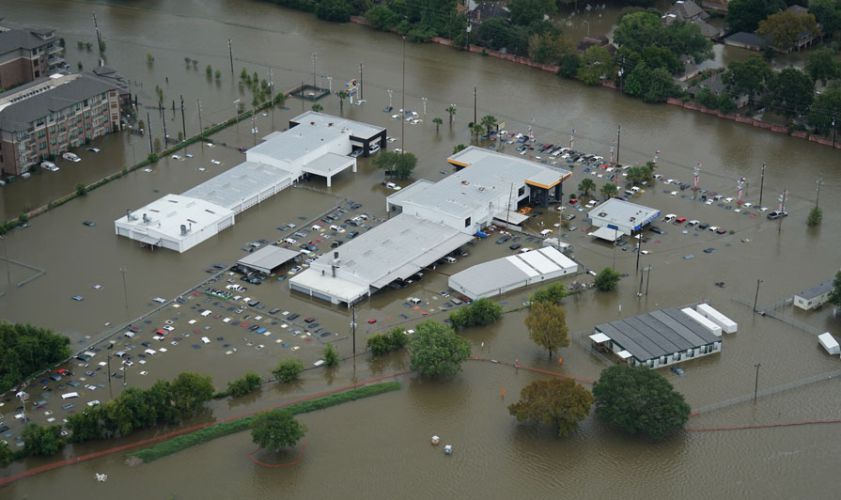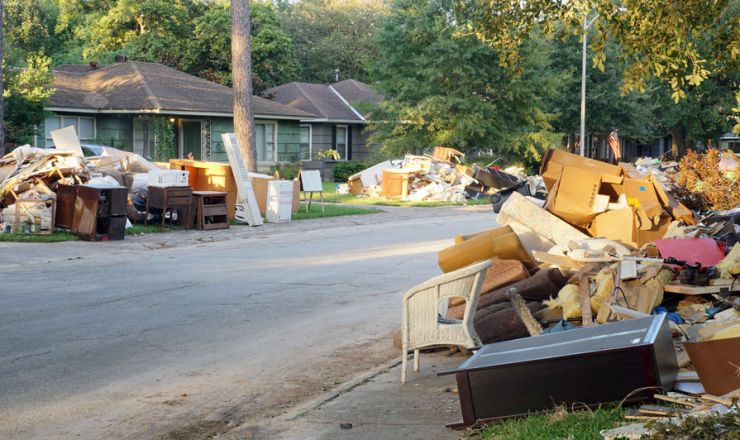Are You Really Prepared For Hurricanes? Nine Critical Guidelines For Businesses In Hurricane-Prone Areas
OCTOBER 2, 2017 BY

Due to Hurricane Harvey, Texas currently has damages estimated at nearly $180 billion. Harvey is one of the most devastating natural disasters in recent US history. While Hurricane Katrina resulted in more than $40 billion in insured losses, and was the most expensive natural disaster when it occurred in 2005, the extent of insured losses caused by Harvey’s winds and storm surge could reach more than $2.3 billion.
Sadly, the worst is not over for the 2017 hurricane season. A new threat, Hurricane Irma, a Category five storm off the East Coast has wreaked most of the Caribbean region. The situation has led states like Florida, Georgia, and North Carolina to issues state of emergencies.

Both Harvey and Irma validate the weather forecast that the 2017 hurricane season would be more active than past years. Twelve named storms occur every season on average, but the 2017 forecast shows fourteen to nineteen named storms, five to nine of which could become hurricanes. Your business stands exposed to immense loss if you do not take the right steps to prevent and mitigate damage from hurricanes.
It is always advisable to be fully prepared because you never know when a hurricane could turn your way. States like North Carolina, New Jersey, Florida, and Maryland are always at a higher risk of being hit by hurricanes. Businesses in and near these areas must also prepare for floods caused by hurricanes, which are amongst the most common natural disasters in the United States.
What can your business do right now to be hurricane-ready? Here are some questions and guidelines to help businesses in hurricane-prone locations:
1. Do You Have Natural Disaster Insurance? Insurance for disaster recovery is one of the first things you need to have. Your business should be evaluated at least once every five years. If you have a flood insurance policy, make sure you renew it regularly.
According to the National Flood Insurance Program, if you allow your policy to lapse for more than 90 days, or twice for any number of days, you may be required to furnish an Elevation Certificate for your property. Here are some additional tips to avoid unnecessary hassles:
- Review property insurance with an insurance company and understand what’s covered
- Find out how The National Flood Insurance Program gives coverage to property owners
- Get business interruption insurance, which covers operating expenses, utilities, and lost income for temporary closure
Once you have all these in place, it is important that you take inventory. Take pictures of your business, both from the outside and inside before and after a storm in order to help make the claims process easier. It is also advisable to store financial records and insurance policies in a watertight container, so they don’t get lost or damaged.
2. Does Your Business Have a Hurricane Action Plan in Place? If you haven’t already got one, the time to prepare an emergency action plan is now. It’s necessary to have written hurricane protective procedures for your company, so that you can protect your employees and minimize damage and loss. For an effective action plan, you must:
- Include pre, during, and post flood situations
- Conduct an employee training program that details your hurricane procedures. This will help ensure everyone is on the same page—for example, let your employees know what channel of communication you would use to notify them to return to work
- Update your employee emergency contact information
- Assign the responsibility of executing hurricane protective measures to an individual
Remember, a hurricane emergency action plan that’s in your head won’t help you, your business, or your employees. Communicate your plan well, so you can speed up recovery.
3. Have You Updated Your Suppliers and Customers? To ensure you can resume business post-flood or post-hurricane, share your communications and recovery plan with your customers and suppliers well in advance.
4. Have You Stocked up on Hurricane Supplies? Harvey taught us that we cannot underestimate hurricanes. Remember that it could take anywhere between two to four weeks for basic supplies and services to start functioning after a major disaster. You should:
- Stock up on two weeks’ worth of supplies
- Keep sufficient cash for business operations to last you until ATMs and banks become operational again
- Fill up tanks of all company-owned vehicles and generators
- Replenish your medical emergency kit
- Finally, check your Disaster Supplies Kit at work and replenish necessary items like batteries, first aid kit, blankets, etc.
5. Have You Turned Off Power and Utilities for Hurricanes? Before the storm, it is vital that you test the building’s emergency power supply/generator. As the storm approaches, you need to:
- Disconnect computers, coffee makers, fax, and photocopy machines
- Protect electrical items from water damage by covering them with plastic.
After the storm is over, survey the building for any damage before turning on the power supply and utilities again.
6. Have You Ensured Protection of Employees during Hurricanes? Ensure your employees clearly know your business’ hurricane procedures and their responsibilities. As an employer, you should:
- Consider providing shelter to employees and their families who live in high-risk areas
- Allow enough time for employees to secure their homes, get supplies and, if the situation calls for it, evacuate
Your employees’ safety comes first.
7. Have You Secured Data, Essential Documents and Goods? Your data and important documents should be one of your top priorities. Here’s how to secure important data before a hurricane:
- Make more than one backup of sensitive data and store them in another location
- Secure checks, financial records, and property papers away in a water-resistant location
- Move important office records on to higher floors or shelves away from the ground to ensure they don’t sustasin damage due to water
- If you do not have access to higher ground, rent a high-security shipping container to protect documents and other important items from heavy rain and wind. If you are in a flood-prone area, ensure you elevate the shipping container using blocks of wood or concrete to avoid water intrusion
8. Does Your Building Have Hurricane Protection? Once you’ve got your insurance papers in place, it’s time to ensure your building is protected from potential damage. You need to:
- Clear drains and gutters to make sure rainwater has a clear passage. Check the downspouts on the roof as well because the weight of accumulated rainwater could damage the building
- Remove antennas or loose objects from the roof
- Take in display racks and any other objects like trash cans, outdoor signs, and potted plants
- Use shutters or board up glass exteriors to protect glass. Secure these with shutters or other protective material, such as plywood
- Use sandbags or plastic sheeting to secure doorwaysFinally, make sure you lock all doors securely before you leave
9. Do You Have Emergency Storage for Hurricane Season? Being prepared could save you thousands of dollars and help make the insurance claims process easier. However, in the event of a major disaster, your building and business could face irreparable damage.
In such situations, your primary task would be to get things up and running as soon as possible. While you may have backed up data and vital documents, you still need secure storage for salvaged items. Renting disaster relief shipping containers is a reasonable solution that will cover your storage needs. Instead of buying shipping containers, you can rent for storage temporarily, and then return the containers when you are back on your feet. All our deliveries are done by our trusted in-house fleet of trucks and trailers. You can also choose from our high security shipping containers for additional safety. Get secure commercial storage for your business this hurricane season and request a quote today.